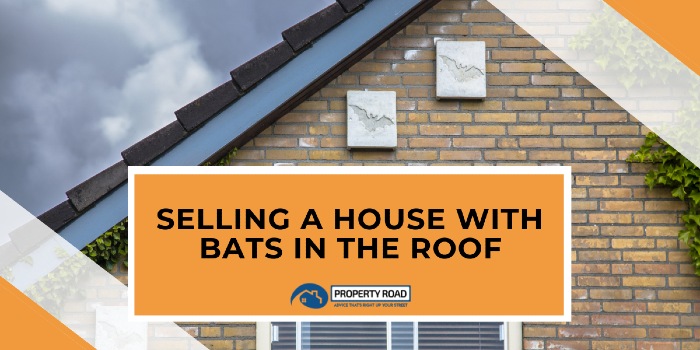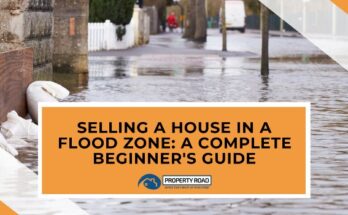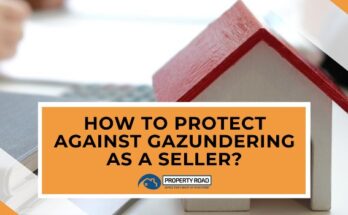If you are thinking of selling a house with bats in the roof, then you may be worried that no buyers will be interested, and your stress levels might rise.
Don’t panic! It’s perfectly possible to sell a home that has these little creatures living in the roof. But there are some things you have to consider and be aware of.
Firstly, a bat roost is protected under UK law – and the roost is protected regardless of whether there are any bats living there.
Secondly, it’s crucial that you inform a potential buyer that you have bats in your property, particularly when you complete the property information form (TA6).
It’s also important to stress that these flying mammals are rarely disruptive or cause other problems when living in a roof space.
How to sell a home with bats in the roof
Did you know there are 18 species of bat living in the UK?
And their natural roosting sites are becoming rarer, which means that artificial sites, including roofs, barns, and bridges, are growing in popularity.
However, the UK’s bat population has fallen dramatically over the past 100 years, mainly down to habitat loss.
The Bat Conservation Trust (BCT) reassures homeowners that these creatures’ roost should not present any problems to anyone purchasing the property, and if there are issues, then support and help is available.
The help includes advice from ecological consultants and the Statutory Nature Conservation Organisation (SNCO).
These SNCOs are paid for by the government – there’s one in each nation – and they can help by offering advice about what needs to be done and whether a licence is needed for any work to be carried out.
Ecological consultants are private contractors who will offer advice and carry out surveys for a fee.
The BCT also claims that many homeowners and renters will be sharing their homes with bats without knowing they are there. Other questions and answers for anyone selling a house with these little fellows in the roof include:
Can bats damage my house?
No, they aren’t rodents, and won’t, usually, cause any structural damage to the property. They also do not gnaw or nibble wires or wood, and they will bring in their own bedding material and any food they need.
Do bats return to the same roost every year?
These cute mammals tend to be seasonal visitors, so they only use the property at certain times of the year.
Do I need a bat survey to replace my roof?
If you are planning on replacing your roof, then it’s a good idea to carry out a survey beforehand. If bats are discovered, a survey will determine whether building work can proceed or whether you need planning permission. This hinges on whether the roof work will disturb the animals. Also:
- Bats will hibernate between November and March, so no survey will be carried out during that period
- You will have to wait until theys become more active
- The survey will be carried out during daylight hours so that bat droppings can be easily spotted and the roost can be investigated
How much does a full bat survey cost?
An expert carrying out this specialist survey may charge around £400.
Can I demolish a house with bats in it?
No.
How to get rid of bats in the UK?

As mentioned, they are protected by law, so you can’t destroy, damage, or disturb the roost of bats.
That means that under no circumstances should you try to get rid of them by yourself because you need specialist help before bats are disturbed, and they may not be able to be removed.
Only a specialist will know whether the bat can be removed and whether this procedure can be carried out.
Should the animals need to be removed, then you’ll need to tell Natural England what you are going to do. See below for the law on removing bats.
If you want to know more about removing bats in the UK, then we recommend that you contact the National Bat Helpline on 0345 1300 228.
Can you renovate a house with bats?
While having bats in your home can be a worry when you need to carry out repair or improvement work, you’ll need to consider these little creatures first. That means you must contact your SNCO or the BCT and seek the correct advice.
The aim is to carry out any renovation work lawfully, which means you may need to take some precautions before proceeding.
Also, this advice is important for contractors who may discover a roost of bats while carrying out work.
It doesn’t matter how many of them are living in the roost, it only takes one bat for the roost to be legally protected. And the species is also irrelevant.
Contractors also need to be aware that they can’t obstruct a roost, damage or destroy it, and they can’t harm or disturb bats. And if they or you do this without knowing the law, you are still committing an offence.
Indeed, most people involved in pest control, maintenance, or construction work, should know what signs they should look out for during work.
This means that the potential of bats living in the property needs to be considered from the very beginning, and the presence of these animals will not mean that work can’t be carried out.
Instead, you’ll need to find a way to carry out work that will not destroy the roost or disturb the creatures. You could:
- Carry out the work at a particular time of year
- Avoid using particular chemicals or materials
- Reduce or avoid the amount of light being installed
- Create or retain bat access points
- Have the work carried out by a bat expert
You may need a licence from the SNCO before starting.
Selling A Property? FREE Step-By-Step Platform
Selling a house with bats in the roof: can I do it?
There are no rules or laws that prevent you from selling a house with these lovely animals in the roof, but you need to declare their presence to the potential buyer.
It’s at this point that we should highlight that if you are aware of bats being present in your roof space and don’t declare it, you may find that:
- The buyer may consider you to be untrustworthy if bats are discovered and will pull out of the sale
- You leave yourself open to legal action afterwards if there is a need for remedial work
And while they have a negative reputation which will put off many buyers, it’s worth stressing that:
- Bats do not cause disruption
- They do not make noise
- They do not create or carry bad smells
We have already seen that most people are not aware that they are living with these fascinating mammals until they need to sell their home or carry out work.
What other work will need a bat survey?
Having discussed the fact that a survey will need to be carried out if you are replacing a roof, any activity that has the potential for harming the animals will need a survey, including:
- Changing the loft insulation
- Converting, renovating, or demolishing a building
- Moving brickwork
- Treating timber or using insecticides
- Placing a light outside the bats’ roost
Can bats damage my house?
Since most people will not know whether bats are living in the property, it makes sense that they are unlikely to damage your home.
Not only do they not make smells or noise, but their droppings will crumble into dust.
They prey on insects, so they will bring food back to their roost and are unlikely to use loft insulation for bedding because they’ll bring this in too.
The downside is that if your roost is home to a large colony of bats, their droppings can become an issue. That’s because there are high levels of uric acid which can erode clay and metal. This can also lead to a foul smell.
A notable example is the erosion of the sandstone in some Angkor monuments in Cambodia due to the salt in bat droppings (Hosono et al., 2006).
A 2011 study by Razafindrakoto et al. also highlights an increased rate of accumulation of fecal droppings in weak or damaged ceilings. This build-up may exacerbate weak points in your home and may lead to additional repair costs.
Exposure also led to symptoms of a flu-like infection or sore throat and a heightened risk of fungal spore inhalation.
Aside from this, the animals may become trapped in your home when they can’t find an exit. Voigt et al. (2016) say that one of the most common bats in the country, the Pipistrellus pipistrellus, often gets trapped during an autumn swarm. Cleaning up bat carcasses can be a hassle and a massive health risk.
Where do bats tend to live?
They don’t just choose properties because they are convenient, they tend to be:
- Older homes, usually built before 1914
- Offer a warm roof – south-facing roofs are popular
- Your property is close to areas for foraging
- You live in a rural area
- Your wall or roof has access points
Tips on avoiding bats in your roof
While there is a particular type of property that bats tend to prefer, there are some features that you could consider if you really don’t want them to live in your roof, and they include:
- Modern homes
- Your property is close to or in a city
- There is a lot of external lighting
- Cold and small rooms
- The roof and walls do not have any gaps in the joints
Will having bats cause my house to drop in value?

Most bat roosts in the UK will be small, and the animals will be creating no smell or noise, so it is unlikely that the property’s price tag will take much of a hit.
However, if your home has a large roost and the little creatures are causing some damage, then you may see a drop in your home’s value.
And, if the damage being caused by bats is from urine, then your home’s value will definitely be affected.
Also, not everyone will want to live in a property with bats in the roof, so buyers may become scarce – which means you may have to price more keenly to find a buyer.
There’s also the issue that you may be unaware of them being present until there is a survey – and the buyer may then reduce their offer.
Another risk is that the buyer pulls out regardless of the roost size, but you should also be prepared for a buyer who doesn’t mind them who will put in a lower offer because other buyers are scarce.
How to sell a home with bats in the roof
While it is undoubtedly a tad more difficult, selling a house with bats in the roof is not impossible because there is lots of advice available.
It’s important that you abide by the law and are honest with potential buyers about the presence of bats.
Remember too, that bats tend not to have large roosts and will not be living in your property permanently.
There’s no doubt that many home sellers will be surprised and disappointed that they have bats, but they and their roosts are protected by law. However, there are specialists who can help you resolve any potential problems.
Your first port of call should be with the Bat Conservation Trust and then the SNCO to ensure that you follow the rules as you try to find a buyer.





